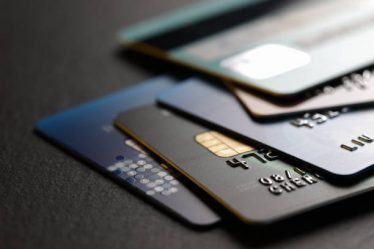
Recently, we wrote Things to Know About Paying Off a Credit Card. We coach people to reduce their debts and live on a cash basis. However, credit cards have important benefits. However, some risks could pose a serious threat to your finances. Credit is best used responsibly and informed.
Perpetual Debit
Credit cards are not meant to be paid off. It’s the worst thing that you can do to your credit cards. But, it’s not the worst. Making the minimum monthly payment is the second. You’ll pay more interest if you pay less than the minimum monthly payment. Your debt will take longer to pay off.
You can read our blog post “The Dangers Of Paying the Minimum On Your Credit Cards“. In the example, you will see that paying $28 for a $1,424 loan would take 12 years and cost $1,238 to interest. This almost doubles its cost. Late payments are charged $35. This is higher than the $28 minimum. Even small debts can take years to repay due to these repayment arrangements.
Articles discussing the dangers of not making minimum payments assume you don’t use the card while paying off the balance. This is not the case. Most people use their credit cards even though they are paying minimum payments. Your overall debt will continue to grow rather than shrink, so it’s a common misconception.
Credit Damage
We covered the benefits of credit cards and how to build good credit in our article Top Five Things to Know about Paying Off Credit Cards. In that article, we discussed how vital credit is for your financial life. Neglecting credit can lead to negative credit ratings.
Your credit score could be seriously affected if you fail to pay your bills or pay more than the due date. Even credit behaviour that isn’t negative can impact your credit score. Getting a balance transferred, opening new accounts, or any other activity can all be red flags to lenders, landlords, employers, landlords and anyone else who may access your credit report.
Even though it may seem very responsible, closing an account on a credit card can be one of the options. Closing unused accounts can reduce your credit score. This could affect your ability to obtain the best terms and rates on auto loans or mortgages.
High Prices
Credit cards are not a free product. You might be able to live without spending any extra, provided you have a card that has no annual fees, and you pay the entire balance before the grace period expires each month. This is very difficult for most people.
First, you will have to pay annual fees. These are becoming more common. These fees are more common for credit cards that offer extra benefits or perks.
There is also interest. You’ll be charged interest if you don’t pay the balance in full within the grace period. If your interest rate is high enough, you might pay more in interest than you are in principle.
Using our Credit Card Payment Calculator, we will take $2,500 of debt and calculate the monthly minimum payment at $50. This debt will be repaid in 9 years and will cost $2,493 in interest. The $2,500 initially spent is almost doubled when the balance is paid.
There are also fees for late payments, balance transfers, and cash advances. These fees can be used to charge for things you shouldn’t do (like late payments or cash advances) and can significantly add to credit card costs.
Overspending
It’s convenient to have credit cards. However, they can also be too convenient and cause people to spend more than they should. It can be easy to swipe your card and purchase the item you want if you are faced with an impulse buy. Although we may think we’ll pay these off soon, the truth is that we shouldn’t buy things we don’t have the means to afford. Even though credit cards make it possible to purchase a product, it doesn’t necessarily mean we can afford it.
People tend to look at a purchase in terms of their credit card balance rather than their cash. It isn’t easy to spend money if you only have $100 cash. If you need $50 to buy something, it would cost you 50% more. If you have a credit limit of $5,000, $50 will only be 1% of your total balance. It’s not true that we don’t have $5,000. The credit card’s available balance creates this illusion. People will buy things on credit that they wouldn’t buy if they had to spend cash.
Our clients who are on a Debt Management Plan must learn this. They must live on cash while on the plan, making them less likely to overspend and help eliminate their debts.
Fine Print
Credit card agreements are known for having a lot of fine print. The terms can give creditors the right to close an account or modify terms, providing proper notice to the consumer. Credit Card Accountability Responsibility & Disclosure Act of 2009 (CARD Act) reduced penalties and made consumer credit card costs more transparent.
Some cards have 0% introductory rates. However, the fine print will indicate when the rate ends and what you’ll be charged if the initial balance is not paid by that date.
You can also change the type of purchase that will earn you a reward. You might receive rewards for shopping at grocery stores one month and restaurant purchases the next. These rotating benefits may have exceptions. Is the cafe at your grocery store considered a restaurant? How about shopping at big-box retailers?
Read all the fine print before you redeem your credit card rewards. Some cards will allow them to sit in the waiting area, while others require you to redeem them immediately. You might be unable to claim your rewards if the redemption process isn’t clearly stated.

